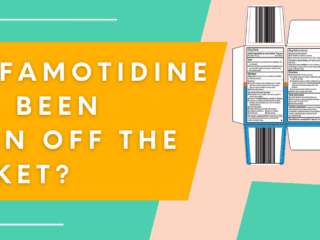Generic Name: Prednisone
Brands: Deltasone, Prednisone Intensol, Rayos, Winpred
Class: Corticosteroid (Glucocorticoid)
Availability: Prescription needed
Molecular Formula: C21H26O5
Substance UNII: VB0R961HZT
What is Prednisone?
Prednisone is a synthetic (human-made) glucocorticoid, a type of corticosteroid. It is available as a generic or the brand names Deltasone, Prednisone Intensol, Rayos, and Winpred.
What is Prednisone Used For?
Glucocorticoids work with the immune system to combat inflammation, which means these drugs are used to treat and manage a variety of conditions, particularly ones that involve the immune system and/or inflammation. Specifically, many use prednisone as an anti-inflammatory medication as well as an immunosuppressive (immune-suppressing) drug. Sometimes prednisone is used for chronic obstructive pulmonary disease (COPD) due to the inflammation that occurs in the lungs.
Conditions doctors prescribe this drug for include rheumatoid arthritis and severe allergies.
How Does Prednisone Work?
Prednisone is thought to work in a few ways. In terms of fighting inflammation, prednisone both suppresses the release of a certain type of white blood cell and makes it harder for certain substancesâlike white blood cellsâto pass through blood vessels. But that’s not all it can do. It can further suppress the immune system by “reducing the activity and the volume of the immune system.” Many times this is beneficial to protecting organs from too much inflammation that can occur in different diseases. (Ex: kidney inflammation could lead to kidney failure).
Before this medication can actively work, though, the bodyâspecifically the liverâmust convert prednisone into prednisolone.
How Long Does it Take for Prednisone to Work?
According to the Arthritis Society, some people can start feeling the effects of this drug just a few hours after their first dose. Most people, though, will feel prednisone’s effects within 1 to 4 days.
Do Not Use Prednisone If:
There are some cases where the use of prednisone is not recommended, its use needs to be closely monitored, or dosages require adjustments. According to the U.S. National Library of Medicine, these cases may include:
- Those who are hypersensitive to this medication or its ingredients
- Those with systemic fungal infections
- People who recently suffered a heart attack
- Those with abnormal thyroid function
- People with cerebral malaria
- People with tuberculosis
- Treatment of optic neuritis patients
- Treatment of active eye herpes patients
- Patients with viral infections like chickenpox or measles
- Administration of live vaccines
Note that this list may not be complete, and there may be other situations where use of this drug is not appropriate. Always speak to your doctor before starting prednisone.
Disclaimer: this article does not constitute or replace medical advice. If you have an emergency or a serious medical question, please contact a medical professional or call 911 immediately. To see our full medical disclaimer, visit our Terms of Use page.








